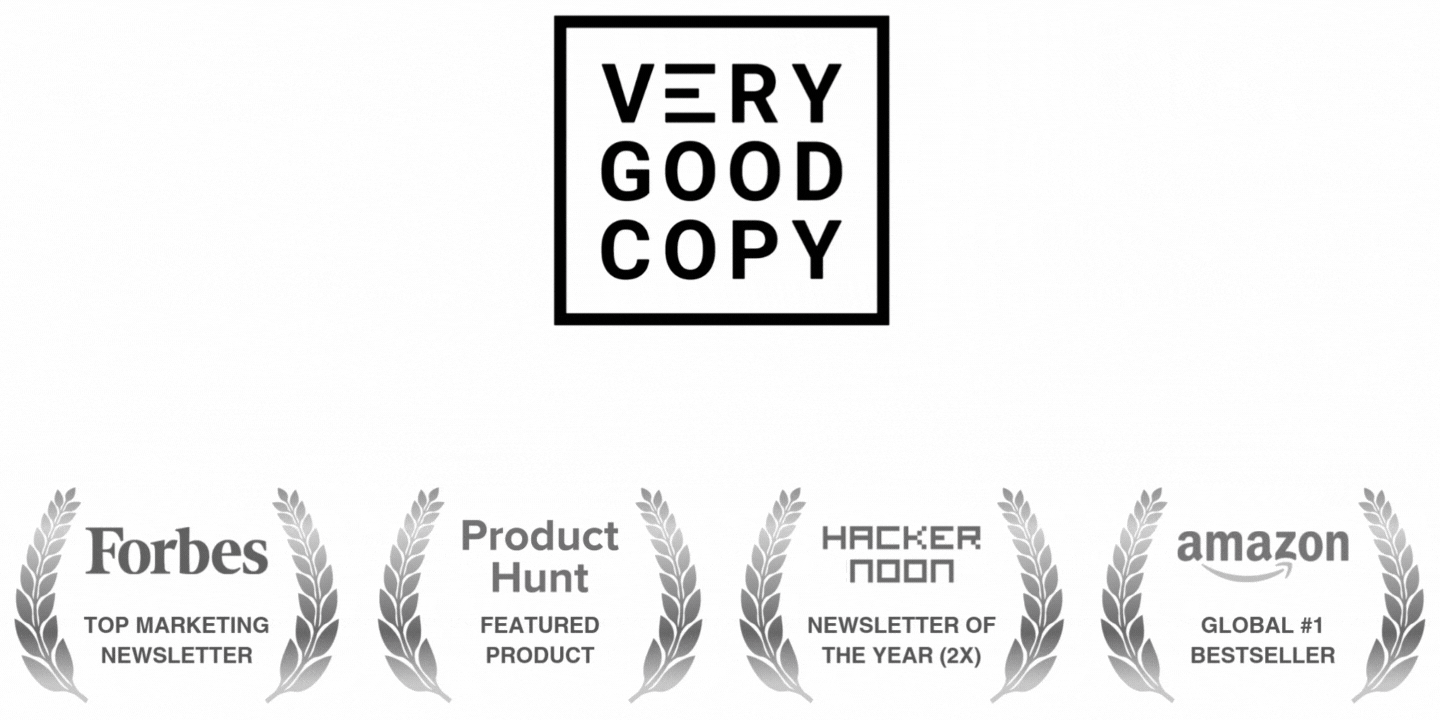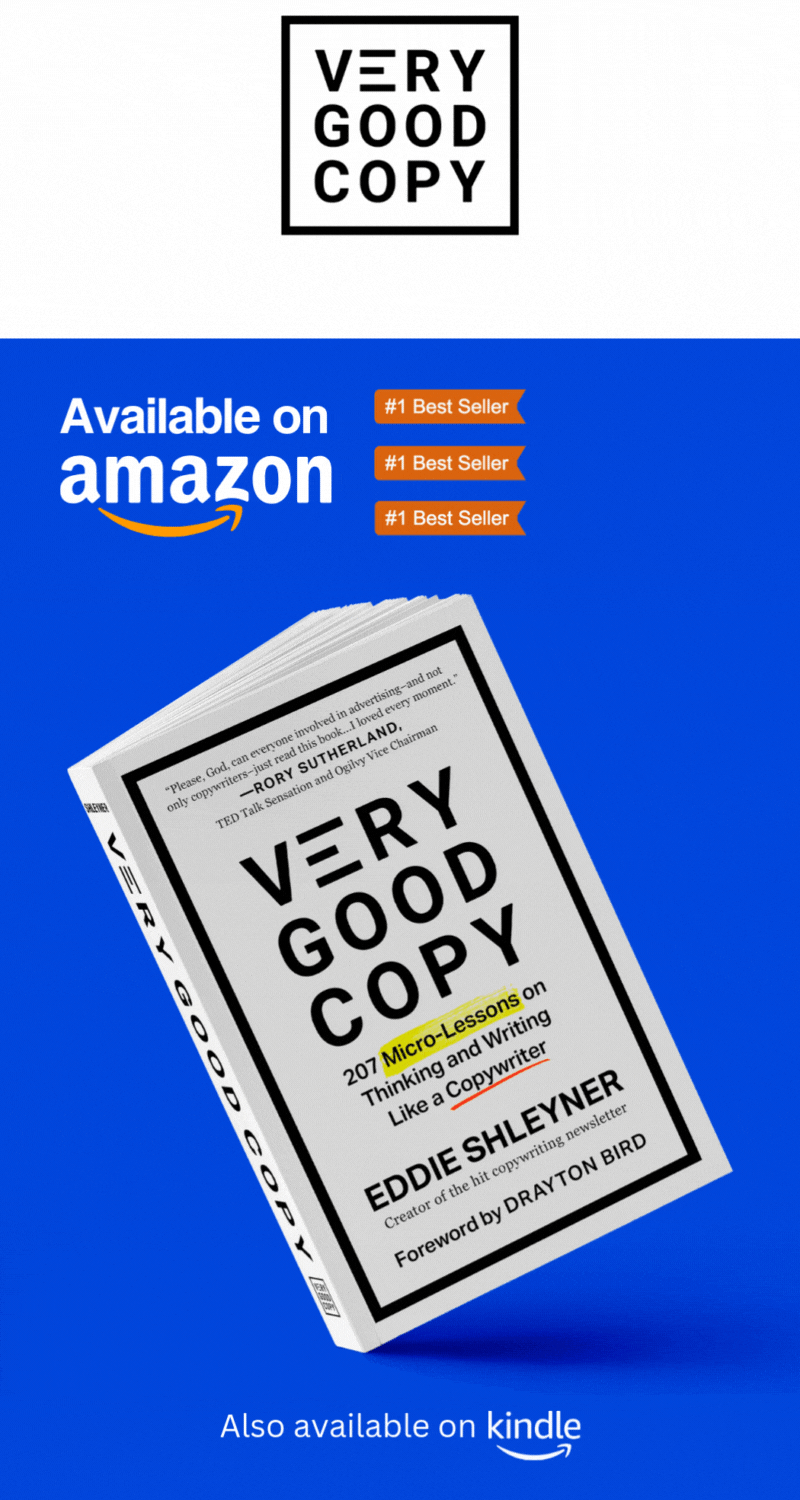Billy Oppenheimer is a writer, a research assistant to author, Ryan Holiday, and founder of Six at 6 on Sunday.
Please enjoy his 469-word Micro-Interview:
Instantly get 6 “micro” courses and series about copywriting when you subscribe to the VeryGoodCopy newsletter for free. Plus...enjoy new content every week. Learn more →
Thanks, Billy.
Let’s get started:
1) "Do you have a work routine?”
I read first thing for an hour and a half to two hours. Then I tackle the biggest item on my to-do list. Once I feel my energy/attention waning, I take a break and eat something. Then I get back into some focused work for an hour and a half or so. Around 4-4:30, I go for a long walk. When I get back, on a notecard, I write down tomorrow's to-do's. Dinner around 6:30. After, I read or watch something until bed around 10:30-11.
2) "What do you wish you'd known about your work when you first started?”
The work is the win.
I often think about something the comedian Hasan Minhaj said. Before he was a big-time comedian, he was asked if he thought he was going to become a big-time comedian.
“I don’t like that question,” he said. “I fundamentally don’t like that question.” Because that question implies that he's just doing comedy as a means to an end—getting the Netflix special, selling out the stadium, having X number of fans, etc. “No, no, no,” he said, “I get to do comedy…I won. It being predicated on doing X or being bigger than Y—no, no, no. To me, it’s always just been about the work. I’m on house money, full time.”
3) “What did your biggest professional failure teach you?”
What first came to mind was not necessarily a big failure. But I thought about writing online for almost two years before I actually started writing online. I was hung up on the idea that I needed a niche. Then I had a conversation with Ryan Holiday where I told him I was just waiting to know for certain what I wanted to write about. “Just start," he said. "You’re trying to map out the whole 9 innings. Just throw the first pitch…You’re better off starting imperfectly than being paralyzed by the delusion of perfection.”
4) “Has anything helped you shorten your craft's learning curve?”
The notecard system (which I wrote about here - https://billyoppenheimer.com/notecard-system/). All of my output is a function of the notecard system. But also...Tyler Cowen likes to ask, “What is it you do to train that is comparable to a pianist practicing scales?" To me, making notecards is like practicing scales.
5) “Do you have a book recommendation?”
Perennial Seller by Ryan Holiday
6) “Any parting piece of advice?”
I'll share what I think is one of the best pieces of advice I've gotten. Robert Greene once told me:
“Above all else, focus on acquiring knowledge and skills. Knowledge and skills are like gold—a currency you will transform into something more valuable than you can imagine."
With knowledge and skills, Robert said, you become a magnet for opportunities.





